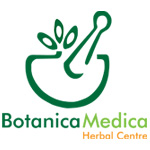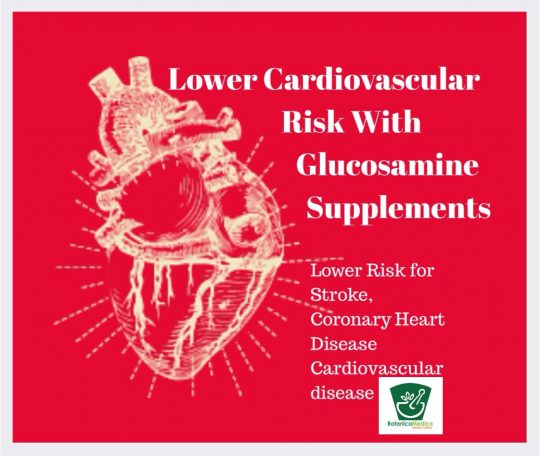Glucosamine Supplements Linked to Lower CVD Event Risks
People who regularly take glucosamine supplements appear to have a moderately lower risk for cardiovascular disease (CVD) events, results from 22 centres participating in the UK Biobank suggest.
Glucosamine use was associated with a 15% lower risk for total cardiovascular disease events and a 9% to 22% lower risk for stroke, coronary heart disease (CHD), and cardiovascular disease death after adjustment for age, sex, body mass index, race, lifestyle factors, diet, medications, and other supplements.
“Even though the use of glucosamine is related to only 15% reduced risk, the effect size is similar to most of the protective dietary factors,” senior author Lu Qi, MD, PhD, from Tulane University School of Public Health and Tropical Medicine, New Orleans, Louisiana, told theheart.org | Medscape Cardiology.
“Another thing that really convinced me about the relationship was that glucosamine use showed a highly consistent association with the various events,” he said.
A few other cohort studies have raised this question including the Vitamins and Lifestyle (VITAL) cohort study, in which high glucosamine use (at least 4 days per week for at least 3 years) was associated with a 17% lower adjusted total mortality risk.
Animal studies suggest the associations may be driven by the anti-inflammatory properties of glucosamine or that the popular supplement may mimic a low carbohydrate diet by decreasing glycolysis and increasing amino acid catabolism, the authors write in their article published online May 14 in BMJ.
Qi and colleagues used data from 466,039 UK Biobank participants without baseline cardiovascular disease who completed a questionnaire on regular supplement use, including glucosamine. In all, 19.3% reported glucosamine use at baseline.
After a median follow-up of 7 years, there were 10,204 incident cardiovascular disease events, 3060 cardiovascular disease deaths, 5745 coronary heart disease events, and 3263 strokes.
In multivariate analyses, the hazard ratios (HRs) associated with glucosamine use were:
• 0.85 for total cardiovascular disease events (95% confidence interval [CI], 0.80 – 0.90; P < .001)
• 0.78 for cardiovascular disease death (95% CI, 0.70 – 0.87; P < .001)
• 0.82 for coronary heart disease (95% CI, 0.76 – 0.88; P < .001)
• 0.91 for stroke (95% CI, 0.83 – 1.00; P = .04)
Glucosamine was associated with significantly lower risks for nonfatal and fatal coronary heart disease (hazard ratios, 0.84 and 0.70; P for both < .001), but only a marginally lower risk for nonfatal stroke (hazard ratios, 0.91; P = .08), and had no association with fatal stroke risk (hazard ratio, 0.87; P = .30).
REFRENCES:
Glucosamine Supplements Linked to Lower CVD Event Risks Patrice Wendling Medscape Cardiology. May 14, 2019
UK Biobank
senior author Lu Qi, MD, PhD, from Tulane University School of Public Health and Tropical Medicine, New Orleans, Louisiana,
published online May 14 in BMJ.
ARTWORK Created in Canva
Glucosamine use was associated with a 15% lower risk for total cardiovascular disease events and a 9% to 22% lower risk for stroke, coronary heart disease (CHD), and cardiovascular disease death after adjustment for age, sex, body mass index, race, lifestyle factors, diet, medications, and other supplements.
“Even though the use of glucosamine is related to only 15% reduced risk, the effect size is similar to most of the protective dietary factors,” senior author Lu Qi, MD, PhD, from Tulane University School of Public Health and Tropical Medicine, New Orleans, Louisiana, told theheart.org | Medscape Cardiology.
“Another thing that really convinced me about the relationship was that glucosamine use showed a highly consistent association with the various events,” he said.
A few other cohort studies have raised this question including the Vitamins and Lifestyle (VITAL) cohort study, in which high glucosamine use (at least 4 days per week for at least 3 years) was associated with a 17% lower adjusted total mortality risk.
Animal studies suggest the associations may be driven by the anti-inflammatory properties of glucosamine or that the popular supplement may mimic a low carbohydrate diet by decreasing glycolysis and increasing amino acid catabolism, the authors write in their article published online May 14 in BMJ.
Qi and colleagues used data from 466,039 UK Biobank participants without baseline cardiovascular disease who completed a questionnaire on regular supplement use, including glucosamine. In all, 19.3% reported glucosamine use at baseline.
After a median follow-up of 7 years, there were 10,204 incident cardiovascular disease events, 3060 cardiovascular disease deaths, 5745 coronary heart disease events, and 3263 strokes.
In multivariate analyses, the hazard ratios (HRs) associated with glucosamine use were:
• 0.85 for total cardiovascular disease events (95% confidence interval [CI], 0.80 – 0.90; P < .001)
• 0.78 for cardiovascular disease death (95% CI, 0.70 – 0.87; P < .001)
• 0.82 for coronary heart disease (95% CI, 0.76 – 0.88; P < .001)
• 0.91 for stroke (95% CI, 0.83 – 1.00; P = .04)
Glucosamine was associated with significantly lower risks for nonfatal and fatal coronary heart disease (hazard ratios, 0.84 and 0.70; P for both < .001), but only a marginally lower risk for nonfatal stroke (hazard ratios, 0.91; P = .08), and had no association with fatal stroke risk (hazard ratio, 0.87; P = .30).
REFRENCES:
Glucosamine Supplements Linked to Lower CVD Event Risks Patrice Wendling Medscape Cardiology. May 14, 2019
UK Biobank
senior author Lu Qi, MD, PhD, from Tulane University School of Public Health and Tropical Medicine, New Orleans, Louisiana,
published online May 14 in BMJ.
ARTWORK Created in Canva


Recent Comments